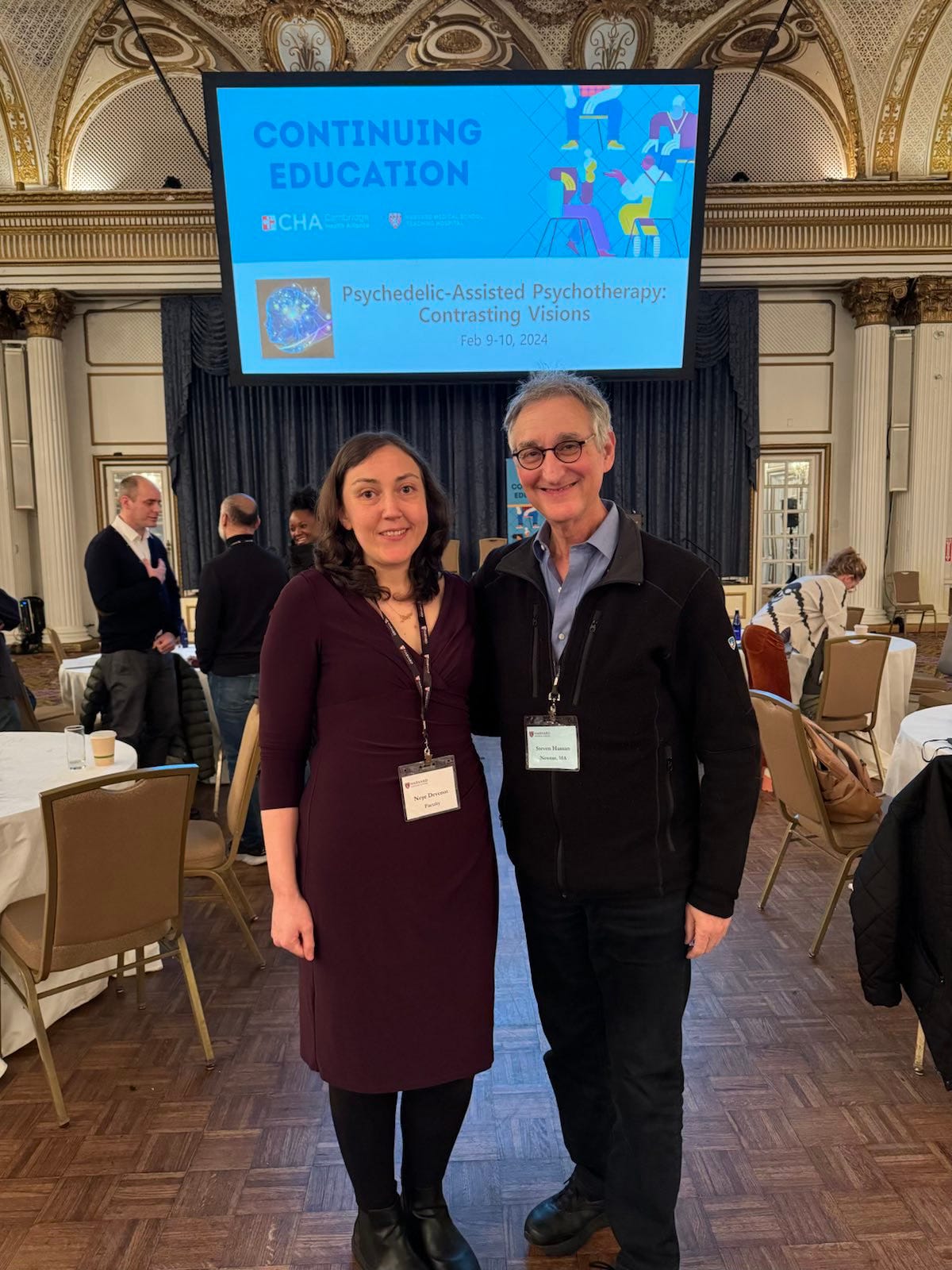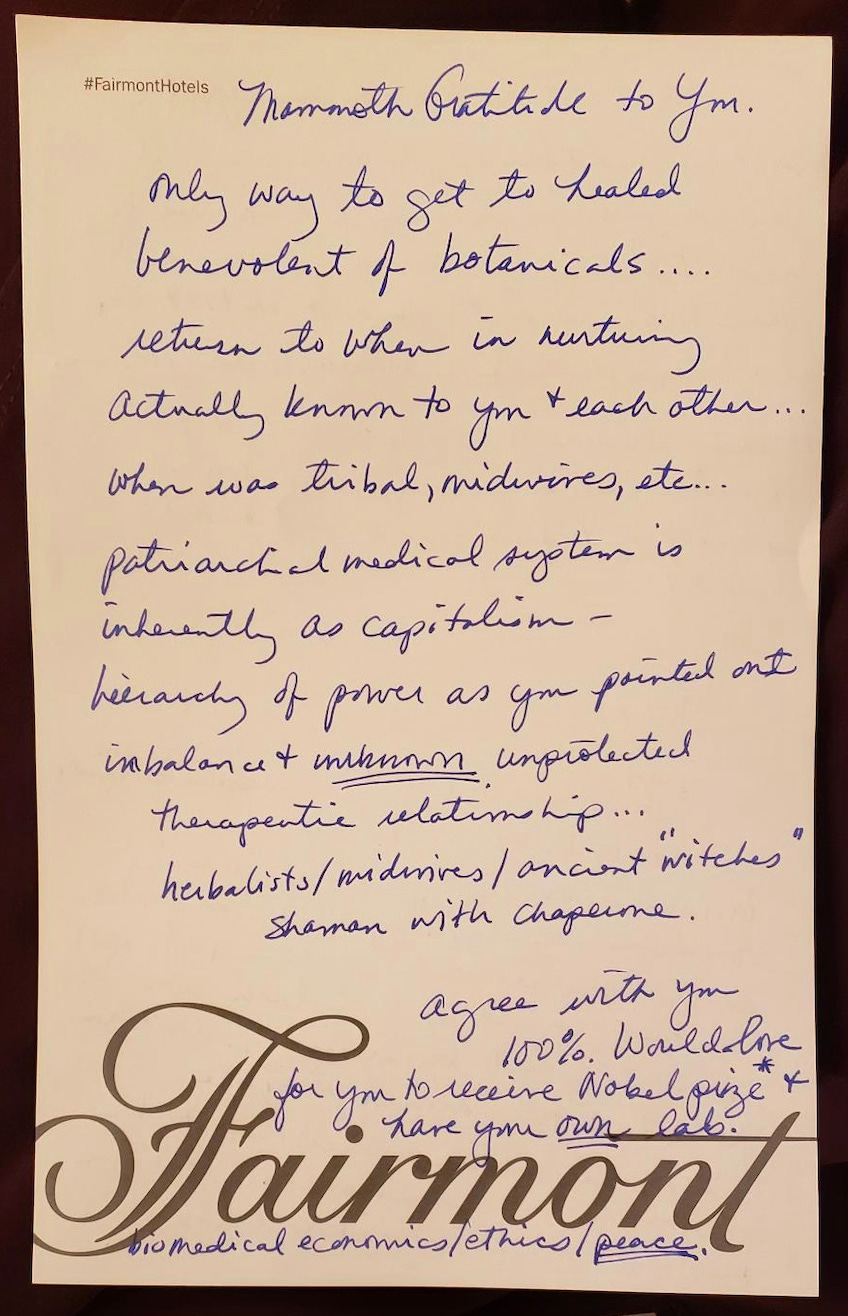Reflections on two psychedelic invitations from Harvard University
On recent interest from Harvard Medical School & Harvard Law School
Coincidentally, I was invited to participate in two different psychedelic initiatives at Harvard University, both of which took place during the past week. The first was a project requested by Harvard Law School, and the second was a conference organized by Harvard's School of Medicine. I was surprised by how these played out, so I wanted to share an update about them here.
For background context: As a psychedelic humanities PhD who had struggled to find a job for nearly 10 years (before I finally joined the faculty at Johns Hopkins University last semester), the fact that multiple Harvard schools sought me out—unrelated and independently—reflects a noticeable shift in my work's impact after so many years of precarity and struggle. By itself, I was pretty excited about that.
And then there was the impact.
Harvard Medical School conference, “Psychedelic-Assisted Psychotherapy: Contrasting Visions”
For the Medical School’s conference on “Psychedelic-Assisted Psychotherapy: Contrasting Visions,” I presented a talk titled "Psychedelic Healing in an Age of Inequality," which argued that psychedelics are fueling the grandiose ideologies that are currently motivating tech billionaires to sacrifice our planet in order to colonize the stars. Those ideologies are already justifying the acceleration of inequality and the destruction of our environment. If these ideologies are allowed to shape the developing psychedelics industry, that industry would ultimately exacerbate the very problems it is claiming to solve.
The conference's organizers asked presenters to incorporate polls in our slides to facilitate audience interaction, since the audience could submit answers anonymously via a website link. I decided to begin and end my presentation with the exact same question:
"How likely is it that billionaires' psychedelic experiences will lead to positive social and environmental changes on a global scale?"
In the psychedelics field, it's pretty common to hear these talking points: Psychedelics induce mystical experiences of interconnection, which will cause billionaires to suddenly care more about other people, which will motivate billionaires to invest their resources in prosocial and pro-environmental ways.
Partially due to my own curiosity, I thought I'd begin with a temperature check on where the room was at. This first poll was relatively split across each of these Lickert scale options: Very likely, Somewhat likely, Neutral, Somewhat unlikely, or Very unlikely.
After I asked the question for the first poll, I proceeded to talk for about 30 minutes, drawing on my prior analyses of right-wing psychedelia and the parallels between psychedelic hype and AI hype. I detailed the ways that billionaire investors are developing psychedelic medicines to adapt people (soma-like) for a world that is bad for mental health; to conscript workers to annotate data for artificial intelligence, after meaningful jobs disappear; and to “eliminate the need for retirement" in old age. I showed evidence that psychedelic fantasies of cosmic power are justifying the exploitation of those at the bottom of capitalism's hierarchy by those at the top. And I reiterated how psychedelic experiences of interconnection are easily interpreted as interconnection to hierarchy, rather than as a source of democratic empathy.
And then I asked the same question at the end of the presentation. There was some uncomfortable laughter from the audience, and then I looked at the screen: Almost everyone was now answering either somewhat or very unlikely. It was awesome to see how a presentation can change people's minds.
In the past, when I would raise critical perspectives about psychedelic risks, it was common to encounter defensive reactions. Now, my presentations regularly get interrupted by whoops and cheers, and people in the audience often rush to find me and thank me afterwards. (As I had mentioned to an organizer before the start of this presentation, the same thing had happened at last summer’s Breaking Convention conference, when I presented a talk titled “You can be both pro-psychedelics and anti-hype,” which can be viewed on YouTube.) At this conference, one audience member passed me a note that ended with this: "Agree with you 100%. Would love for you to receive the Nobel Prize and have your -own- lab!"
Harvard Law School, Petrie-Flom Center, Bill of Health blog
This brings me to my other project, which is being released via Harvard Law School's Petrie-Flom Center and its widely-read bioethics blog, Bill of Health. Over a year ago, I was asked to convene a virtual symposium on a subject of my choice. For the topic, I chose "Critical Psychedelic Studies: Correcting the Hype."
As I explain in the editorial introduction, "The essays collected in this symposium represent a diversity of viewpoints about the field and its potential futures, rather than a consensus perspective. Despite differences of opinion, disciplinary vantage point, and level of analysis, they are united in calling attention to significant topics that have been under explored in the dominant discourse about psychedelic medicine."

In the process of writing the introduction, I realized that this would arguably be the first major psychedelic humanities project to launch at Harvard since it received its $16 million grant for that topic. Neither I nor the contributors received any money for this work, and this project is not affiliated with the grant, but I was glad that "critical psychedelic studies" could get some attention now that the humanities are newly seen as significant.
Over the past many years, the orientation of my work has been essentially the same, but the zeitgeist seems to be changing the reception to it. I hope it all makes some small difference, since there's a lot at stake.







The problem with corporate psychedelics is that they promise you the Dalai Lama on a mountain but they deliver Jay Shetty in a hotel convention room